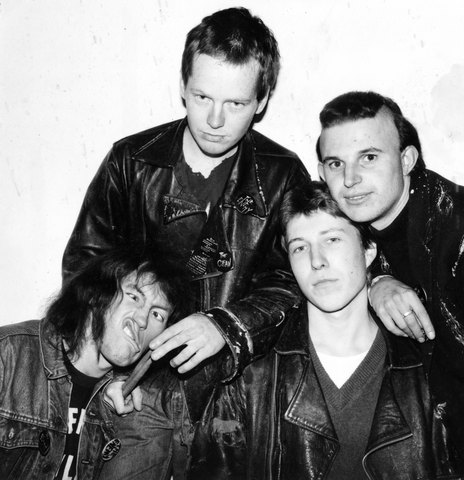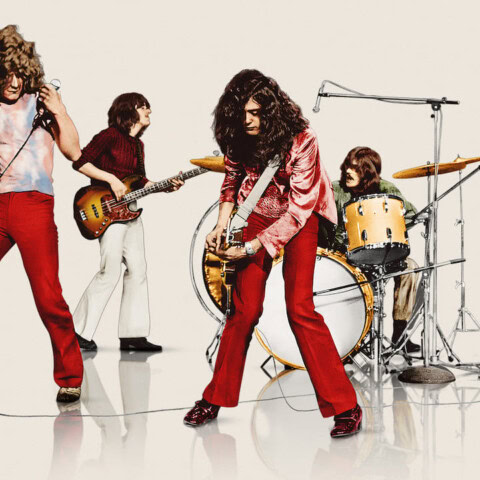Witchdoctor Rating
-
- 9.5/109.5/10
Summary
The Handmaid’s Tale is a horrible television series that everyone needs to see, writes ANDREW JOHNSTONE.
 Capsule Review: In 2004 the odious Brian Tamaki rallied his Destiny congregation for a march on Parliament to oppose Civil Unions. Some two thousand evangelicals turned up (he had promised 10 thousand) and dressed in black t-shirts pumped their fists in the air and chanted, “Enough is enough”. Somewhat emboldened, Tamaki predicted the Church’s political arm would triumph in the following years’ general election and turn New Zealand onto God’s path. Want some idea of how that might have turned out? The Handmaid’s Tale will tell you all you need to know. One of the most potent and important stories ever conceived about the dangers of ideological theocracy (a system of government in which the religious rule in the name of a god) it has been turned into a TV series and the result is gut-wrenching, and essential viewing for those concerned with liberty, freedom and justice. Otherwise, The Handmaid’s Tale is brutal dystopian drama of the first order.
Capsule Review: In 2004 the odious Brian Tamaki rallied his Destiny congregation for a march on Parliament to oppose Civil Unions. Some two thousand evangelicals turned up (he had promised 10 thousand) and dressed in black t-shirts pumped their fists in the air and chanted, “Enough is enough”. Somewhat emboldened, Tamaki predicted the Church’s political arm would triumph in the following years’ general election and turn New Zealand onto God’s path. Want some idea of how that might have turned out? The Handmaid’s Tale will tell you all you need to know. One of the most potent and important stories ever conceived about the dangers of ideological theocracy (a system of government in which the religious rule in the name of a god) it has been turned into a TV series and the result is gut-wrenching, and essential viewing for those concerned with liberty, freedom and justice. Otherwise, The Handmaid’s Tale is brutal dystopian drama of the first order.
I didn’t want to watch this because I knew what was in store, having twice seen the excellent 1990 film adaptation: a horror of epic proportions featuring psychopaths, sadists, bestial violence and more. As I get older, I’m less able to cope with this level of brutality, but nevertheless, it’s important now and again to be reminded of just how badly things can go wrong, given the ‘right’ set of circumstances.
The most glaring example of how a society can be hijacked by psychopathy is Hitler’s Germany, but this is only one example out of the recent past that includes Stalin’s Russia, Mussolini’s Italy, Hoxa’s Albania and Ceau?escu’s Romania. Then there is Pol Pot’s Cambodia, Mao’s Cultural Revolution in China, the reign of the Argentinean Generals, Pinochet’s Chile and apartheid-era South Africa, to name a few worthy contenders.
In a future that is only moments removed from now, America’s second Civil War is set in motion by an infertility crisis and with the exception of Alaska and a bit of the Pacific Northwest, the Union is in ruins. A fundamentalist Biblical religious movement called The Sons Of Jacob have managed a successful coup and have renamed the USA The Republic of Gilead, achieving something very similar to what we saw the Taliban enable in Afghanistan for a time, and what ISIS is trying to facilitate with its ‘pure’ Islamist Caliphate in parts of the Middle East at this very moment.
 The result is a nightmare for women and male non-believers as the Constitution is suspended and a new moral code is enacted. The Eyes, a secretive police force charged with enforcing the strict new law based on Old Testament biblical morality, are everywhere (akin to Iran’s Gasht-e Ershad – Moral Police) and brutal with it. People are hauled off the street for minor infringements, and punishments ranging from eye removal to arbitrary hangings are now the norm.
The result is a nightmare for women and male non-believers as the Constitution is suspended and a new moral code is enacted. The Eyes, a secretive police force charged with enforcing the strict new law based on Old Testament biblical morality, are everywhere (akin to Iran’s Gasht-e Ershad – Moral Police) and brutal with it. People are hauled off the street for minor infringements, and punishments ranging from eye removal to arbitrary hangings are now the norm.
The judicial system could easily be compared with the Nazi’s People’s Court, where the accused are formally charged and penalties are handed out with no right of redress. Otherwise, society is confined to a series of strange and perverse rituals designed to appease God for the moral waywardness that has resulted in the fertility crisis. The handmaids of the title are those few women still able to conceive, and thus blessed, are set aside for mating with high-ranking officials. They are both treasured and jealously despised. They are also slaves.
Of course, this society is immensely sadistic, punitive and corrupt as all extremist ideologies are, and those at the top of the hierarchy pay due tribute to the law, but behind closed doors they live as they please. The philosophy of ‘Do as I say, not as I do’ is well-examined, reinforcing age-old warnings about those who flaunt their piety. These sorts are often not pious at all, more like opportunists in search of the main chance. Images of American Republican notables like Paul Ryan and Ted Cruise on their knees and praying in public outside the White House come to mind.
We first met actress Elizabeth Moss in the groundbreaking TV series Mad Men a few years back, and latterly she has appeared in hit Kiwi mini-series Top Of The Lake. In The Handmaid’s Tale she tackles the complex lead role of June (later renamed Offred), a woman struggling under a kind of duress that is almost impossible to fathom.
 A student, wife and mother with a job, she is a fairly standard representation of the modern American woman, and through a series of flashbacks we examine her life in the ‘time before the fall’. An especially chilling scene is early on in the piece when June’s credit card is declined. “But I have four thousand dollars in my account,” she says.
A student, wife and mother with a job, she is a fairly standard representation of the modern American woman, and through a series of flashbacks we examine her life in the ‘time before the fall’. An especially chilling scene is early on in the piece when June’s credit card is declined. “But I have four thousand dollars in my account,” she says.
Yes she does, except the new laws enacted that day restrict a woman’s right to an independent life and require that a close male relative manage her finances. “We don’t serve sluts here,” she is told. The next day all female employees at her work place are laid off and sent home ‘where they belong’. This brave new world is a man’s one, and you conform or die, simple as that.
She is now a slave womb in servitude to one of the most powerful men in Gilead, the high-ranking Commander Waterford, and through her eyes we examine the ritual, process and fear that makes up the machinery of the Handmaid system. The commander and his infertile wife are counting on Offred to provide them with the child they need to bolster their social position and salve their precarious emotional state.
Besides Moss’s contained and deeply nuanced portrayal of Offred (whose head is being kept above water out of hope she might find her confiscated daughter) the talented cast includes Joseph Fiennes (Shakespeare In Love, Enemy At The Gates, American Horror Story) as the Commander, Yvonne Strahovski (Dexter, Chuck) as the Commander’s bitter wife, Serena Joy, and Alexis Bledel (Gilmore Girls) as Ofglen, Offred’s Handmaid shopping partner.
Her real name is Emily and she is a ‘gender traitor’, the new term for gay people, and when she is discovered having an affair with a ‘Martha’ (a lowly infertile female household servant) her punishment is genital mutilation. After Moss, the standout performer is Ann Dowd (an instantly recognisable character actor of roles too numerous to mention) as Aunt Lydia, instructor and guardian of the Handmaids.
 The book’s author Margaret Atwood talked to RNZ Broadcaster Kim Hill recently and shared her thoughts and feelings a about The Handmaids Tale. A child of the 1930s, she was born under the shadow of totalitarian regimes of various stripes, including fascism and communism. She describes how these regimes happen, as well as the personality types that make them work – from the compliant though to the sadistic. Aunt Lydia is a case in point, and exactly the type who made the Nazi extermination camps work as efficiently as they did.
The book’s author Margaret Atwood talked to RNZ Broadcaster Kim Hill recently and shared her thoughts and feelings a about The Handmaids Tale. A child of the 1930s, she was born under the shadow of totalitarian regimes of various stripes, including fascism and communism. She describes how these regimes happen, as well as the personality types that make them work – from the compliant though to the sadistic. Aunt Lydia is a case in point, and exactly the type who made the Nazi extermination camps work as efficiently as they did.
A decent series is going to be just as potent in two years from now as it will be tomorrow so there is no real rush to see it, but there are exceptions, and The Handmaid’s Tale is one of those, because it is such an important and prescient story in light of the ‘populist’ politics at work in the world today. I’m thinking of Trump’s America, Duterte’s Philippines, and Erdogan’s Turkey, among others, and while the series sticks close to Atwood’s sharply drawn premise, it manages some decent commentary on the current state of the USA and the growing influence of evangelical politicians.
This is a skillfully conceived production and the attention to detail is astonishing. The camera work in particular needs special mention, with every frame being a minor miracle of composition (often like something out of a Vermeer painting) and an example to all about how the lens can be used but so often isn’t.
My only quibble is with Moss’s voice-over, which veers from commentary to diarist. When it is the former it works superbly, but when it is the latter, not so much, as it seeks to explain unnecessarily what the visuals are already describing aptly.
 Otherwise, this is a gut-wrenching affair. I began this review by calling it a horror, and that is what it is, but the beast under the spotlight is not something exterior, but something from within – a monster created by the psyche and cast into life by social dysfunction. This is the greatest terror of all, man’s inhumanity to man by way of extremist devotion to belief, and Atwood’s story reminds us that that this beast lurks behind every heartbeat waiting for the right moment to appear. This is why The Handmaid’s Tale is so important, because it reminds of how easily social cohesion can be undermined in times of stress and confusion. Beware, be wary and be warned.
Otherwise, this is a gut-wrenching affair. I began this review by calling it a horror, and that is what it is, but the beast under the spotlight is not something exterior, but something from within – a monster created by the psyche and cast into life by social dysfunction. This is the greatest terror of all, man’s inhumanity to man by way of extremist devotion to belief, and Atwood’s story reminds us that that this beast lurks behind every heartbeat waiting for the right moment to appear. This is why The Handmaid’s Tale is so important, because it reminds of how easily social cohesion can be undermined in times of stress and confusion. Beware, be wary and be warned.
https://www.youtube.com/watch?v=PJTonrzXTJs
Check out Kim Hill’s interview with Margaret Atwood here.
Other notable works exploring dystopian political themes include:
Animal Farm and 1984 by George Orwell.
Fahrenheit 451 by Ray Bradbury. The 1966 film version was directed by French film master François Truffaut and is a lot better than many critics would have you believe.
The Children Of Men by P.D James. The 2006 film is well on its way to ‘revered cult’ status.
Make Room Make Room by Harry Harrison. The very excellent film version is called Soylent Green.
The Dispossessed by Ursula K Le Guin. Like Orwell’s Animal Farm this work puts the ideologies of communism and capitalism under the spotlight and finds both wanting.
Brave New World by Aldous Huxley.
The Giver by Louis Lowry.
The Trial by Franz Kafka. The great film director Orson Welles’ 1962 film version is hard work but visually stunning.
The Man In The High Castle by Philip K Dick. The brilliantly conceived TV series is well worth a visit.
* The Internet and ‘TV on Demand’ has revolutionised the way we watch TV shows. No longer beholden to television networks and their programming whims and scheduling, we can watch back-to-back episodes of new and old shows to our heart’s content without those annoying advertisements interrupting the narrative flow. TV viewing has suddenly become more accessible, democratic and a hell of a lot more fun. ANDREW JOHNSTONE scours the available channels and finds the best of the best, so you don’t have to.















